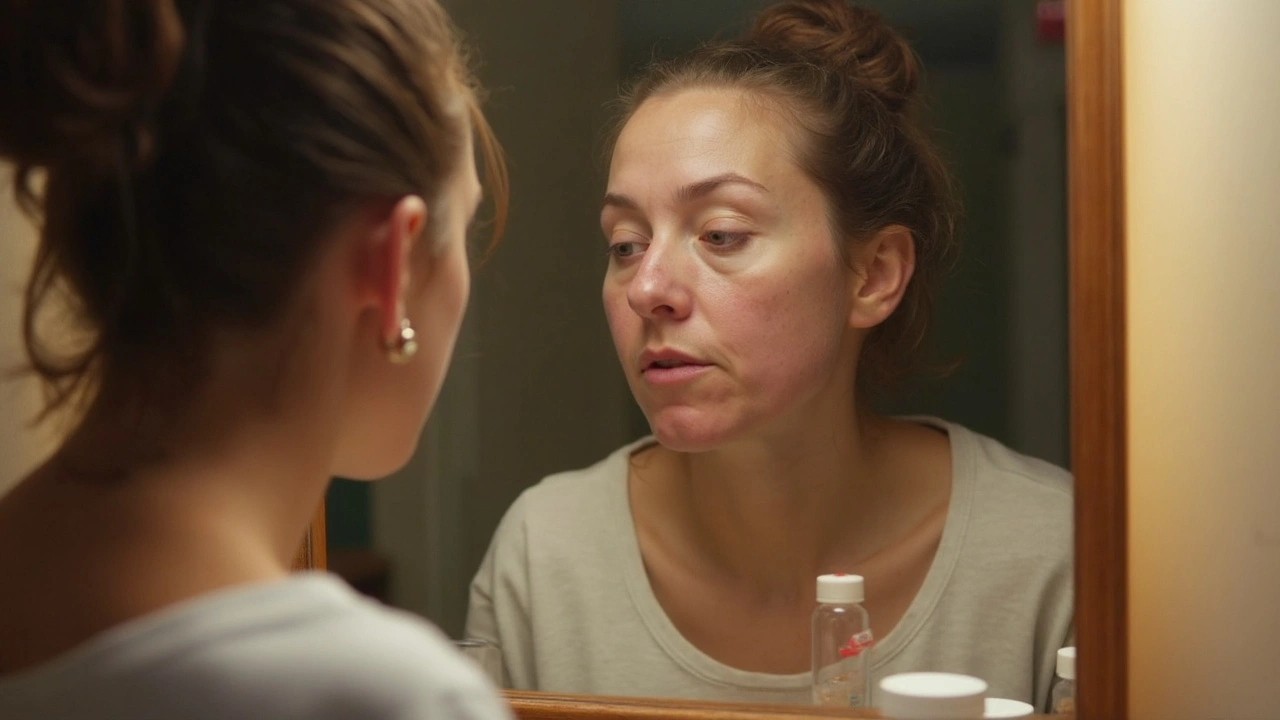Isotretinoin: What You Need to Know Before Starting
If you’ve tried everything for stubborn acne and nothing helped, your doctor might suggest isotretinoin. It’s often sold under brand names like Accutane, Roaccutan, or Claravis, but the active ingredient is the same. This oral retinoid can clear severe acne in months, but it also comes with a list of things you should watch for.
First off, isotretinoin is a prescription‑only drug. You’ll need a doctor’s approval and, in many countries, you’ll have to sign a special agreement because of its potential risks. The medication is usually taken once or twice a day with food, and treatment lasts 4‑6 months. Most people see big improvements by the third month, but staying on schedule is crucial for the best results.
How Isotretinoin Works
Think of isotretinoin as a triple‑action acne fighter. It shrinks the oil glands in your skin, reduces the amount of sebum that feeds bacteria, and helps skin cells shed more cleanly, preventing clogged pores. It also has an anti‑inflammatory effect, which means the redness and swelling you see with pimple‑prone skin calm down faster.
Because isotretinoin targets the root cause of acne, it’s usually reserved for cases like nodular cystic acne or persistent breakouts that haven’t responded to topical creams, antibiotics, or hormonal treatments. If you fit that description, the drug can be a game‑changer.
Key Tips for Safe Use
1. Check your pregnancy status. Isotretinoin can cause serious birth defects. Women of child‑bearing age must use two forms of birth control and take monthly pregnancy tests throughout treatment.
2. Monitor blood work. Your doctor will order liver function tests and lipid panels before you start and every few weeks after. The drug can raise triglycerides and affect liver enzymes, so any major spikes may require a dose adjustment.
3. Start with a low dose. Many doctors begin at 0.5 mg/kg per day and increase gradually. A lower start helps your skin adjust and reduces the chance of severe dryness.
4. Expect dry skin and lips. Dryness is the most common side effect. Use a fragrance‑free moisturizer, lip balm, and drink plenty of water. If your eyes feel gritty, consider over‑the‑counter artificial tears.
5. Watch for mood changes. Some users report depression or irritability. If you notice a shift in mood, contact your doctor right away. It’s better to be safe than to ignore a possible warning sign.
6. Avoid vitamin A supplements. Isotretinoin is a form of vitamin A, so extra supplements can push your levels too high and increase toxicity risk.
Most side effects are manageable, but a small number of people experience more serious issues like severe joint pain or vision changes. If anything feels off, don’t wait – reach out to your health provider.
When you finish the course, many patients stay clear of acne for a year or more. Some need a second round, especially if the first dose was on the lower side. Your dermatologist will decide based on how well you responded.
Bottom line: isotretinoin can transform severe acne into smooth skin, but it demands respect and careful monitoring. Talk openly with your doctor, follow the lab schedule, and keep up with the skin‑care routine they suggest. With the right approach, you’ll get the clear‑skin results you’ve been waiting for without unnecessary worries.

REMS for Isotretinoin: iPLEDGE Requirements and Safety in 2026
iPLEDGE is the FDA's mandatory program to prevent birth defects from isotretinoin. Learn the 2026 requirements, recent changes, patient experiences, and how to navigate the system safely and efficiently.

Accutane Guide: Isotretinoin Treatment, Side Effects, and Real Stories
Accutane (isotretinoin) is a powerful medication used for severe acne. Discover how it works, what to expect during treatment, how to deal with side effects, and get practical tips from first-hand experiences. Learn facts that dermatologists want you to know, see real-life stories, and explore the science behind this acne solution.
